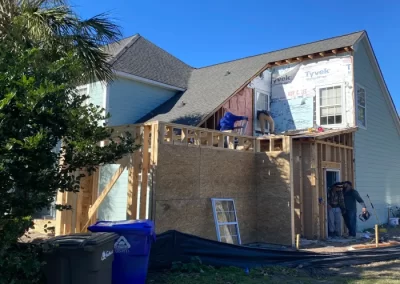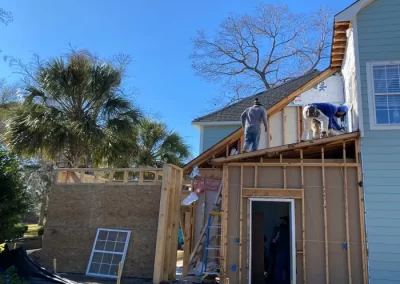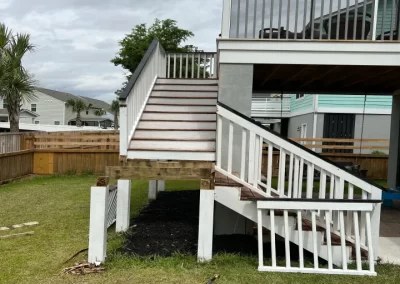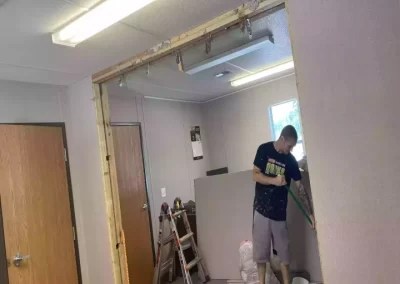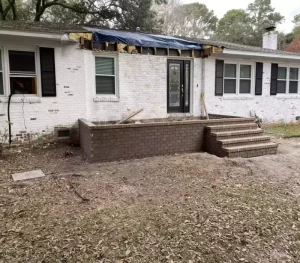Residential Demolition
A Quick Guide to Preparing for a House Demolition
First, speak with a mortgage lender.
Second, Ask contractors for quotes.
Third, Getting permits
Fourth, Speak with utility providers
Fifth, Scan for dangerous substances
There are various reasons why people demolish houses and other buildings. Some homes are simply too damaged to be repaired after a natural disaster like fire. It might not be financially prudent to modify the house to the bare minimum at the cost. Maybe you’ve just bought a piece of property with a run-down or neglected building, and you want to start over. Whatever the reason, demolishing a full house is more complicated than just tearing down some walls and requires advance preparation.
Is It Possible to Demolish a House Yourself?
The quick response? Yes. But before you start any demo work, you’ll need to prepare, so hold off on using your sledgehammer. It’s essential to adhere to specific procedures for safety reasons and to comply with local laws. It’s crucial to think about whether you have the time, knowledge, and resources necessary to undertake a whole-house demolition.
How to Prepare for a House Demolition
The key to a successful home demolition procedure is preparation. You can save time, money, and hassle by doing the following actions:
Give your mortgage lender a call.
You must inform your lender of your intention to demolish your home if you don’t own the property outright. The properties that lenders fund are in their best interests. If you don’t have the proper permits, your lender may demand immediate and complete repayment of your mortgage. Since every loan agreement is unique, it is essential to get in touch with your lender to talk over the specifics.
Ask Demolition Contractors for Quotes
It’s always a good idea to get in touch with a few certified demolition firms to get an idea of how much the demo will cost, even if you intend to handle the task yourself. For larger buildings, you should often budget $5,000 to $15,000 or more. Make sure to request at least three quotations from demolition-focused contractors.
You might discover that hiring a demo contractor wouldn’t cost that much more than doing it yourself when you take into account the amount of time it will take, the cost of equipment, permits, and other factors.
Get the Required Permits
Depending on where you live, you may or may not require a permit to demolish your home. Before demolishing a house, you must obtain a permit from the local building department or housing authority in urban, suburban, and some rural areas. You don’t want to skip this step. The work will be stopped if city or county officials learn that you are carrying it out without a permit. Also possible are significant fines.
Ask your demolition contractor if they will seek these permissions on your behalf as part of the project cost if you are hiring them. The procedure might be sped up thanks to connections contractors frequently have with the neighborhood building departments.
Inquire with utility companies
Before demolition can start, gas, water, and electricity must be properly disconnected from and terminated at the source. To make sure utilities are correctly disconnected, the fire department or another authority might need to conduct an inspection in specific places.
Examine for Materials that may be of danger
Older buildings may have included hazardous elements like asbestos, lead paint, and others, which must be handled carefully and disposed of. To prevent exposure to airborne asbestos, it is recommended to have asbestos used in your home’s floors, ceilings, or insulation professionally removed. In order to avoid getting sick or hurt, proper mold removal is also necessary.
Methods for Demolition
The two main methods for demolishing a house are deconstruction and mechanical demolition. Deconstruction is exactly what it sounds like: manually disassembling the house. Mechanical demolition entails razing a structure to the ground, frequently with the aid of large machines. After that, trash is removed by truck or dumpster. Sometimes, demolition companies will combine the two techniques and take out valuable or reusable materials like copper piping, lumber, and functional light fixtures.

